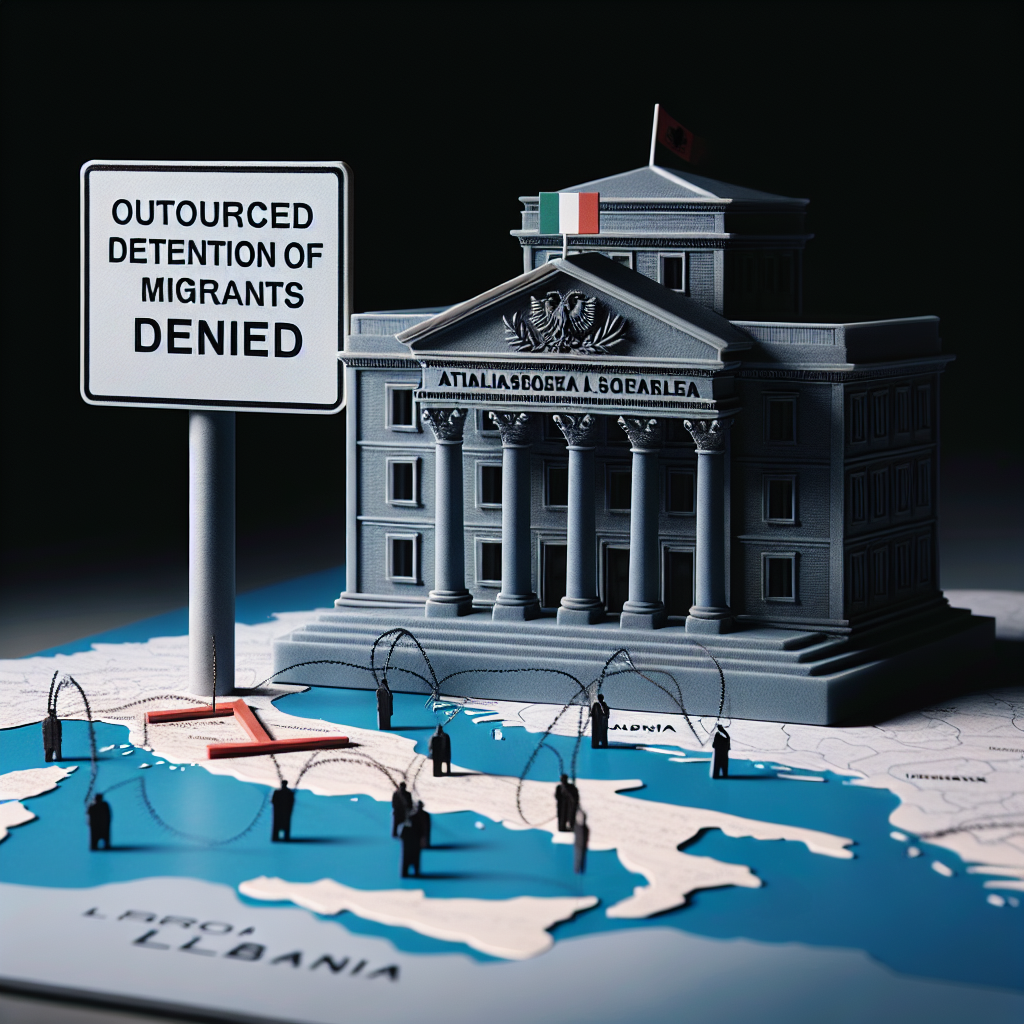Italian Court Denies Outsourced Detention of Migrants Sent to Albania
Italian Court Denies Outsourced Detention of Migrants Sent to Albania

Overview
An Italian court has made a significant ruling against the government’s plan to outsource the detention of migrants to Albania. This decision highlights the ongoing challenges and legal considerations surrounding migration policies in Europe.
Key Points of the Ruling
- Legal Concerns: The court found that the plan to send migrants to Albania for detention raised serious legal issues, particularly concerning human rights and international law.
- Human Rights Implications: The ruling emphasized the potential violation of migrants’ rights, as outsourcing detention could lead to inadequate living conditions and lack of proper legal recourse.
- Policy Impact: This decision is a setback for the Italian government’s efforts to manage migration through external partnerships.
Reactions and Implications
The court’s decision has sparked a range of reactions from various stakeholders:
- Government Response: Italian officials expressed disappointment, arguing that the plan was a necessary measure to address the migration crisis.
- Human Rights Advocates: Advocacy groups welcomed the ruling, viewing it as a victory for the protection of migrant rights.
- European Context: The ruling may influence other European countries considering similar outsourcing strategies for managing migration.
Conclusion
The Italian court’s decision to block the outsourcing of migrant detention to Albania underscores the complex interplay between national policies and international human rights standards. This ruling not only impacts Italy’s migration strategy but also sets a precedent that could affect broader European migration policies. As countries grapple with migration challenges, balancing security concerns with human rights obligations remains a critical issue.

















